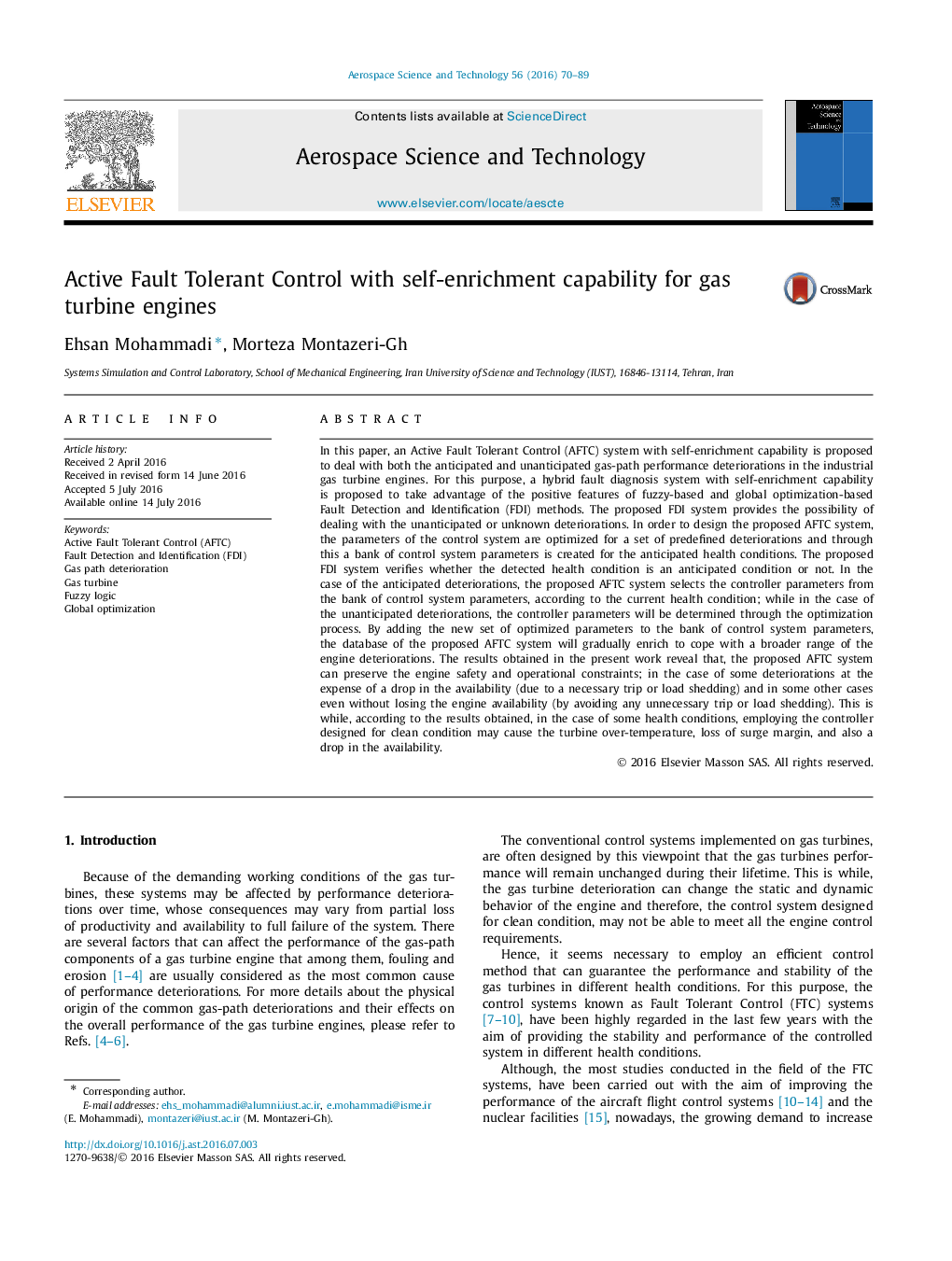| Article ID | Journal | Published Year | Pages | File Type |
|---|---|---|---|---|
| 1717590 | Aerospace Science and Technology | 2016 | 20 Pages |
In this paper, an Active Fault Tolerant Control (AFTC) system with self-enrichment capability is proposed to deal with both the anticipated and unanticipated gas-path performance deteriorations in the industrial gas turbine engines. For this purpose, a hybrid fault diagnosis system with self-enrichment capability is proposed to take advantage of the positive features of fuzzy-based and global optimization-based Fault Detection and Identification (FDI) methods. The proposed FDI system provides the possibility of dealing with the unanticipated or unknown deteriorations. In order to design the proposed AFTC system, the parameters of the control system are optimized for a set of predefined deteriorations and through this a bank of control system parameters is created for the anticipated health conditions. The proposed FDI system verifies whether the detected health condition is an anticipated condition or not. In the case of the anticipated deteriorations, the proposed AFTC system selects the controller parameters from the bank of control system parameters, according to the current health condition; while in the case of the unanticipated deteriorations, the controller parameters will be determined through the optimization process. By adding the new set of optimized parameters to the bank of control system parameters, the database of the proposed AFTC system will gradually enrich to cope with a broader range of the engine deteriorations. The results obtained in the present work reveal that, the proposed AFTC system can preserve the engine safety and operational constraints; in the case of some deteriorations at the expense of a drop in the availability (due to a necessary trip or load shedding) and in some other cases even without losing the engine availability (by avoiding any unnecessary trip or load shedding). This is while, according to the results obtained, in the case of some health conditions, employing the controller designed for clean condition may cause the turbine over-temperature, loss of surge margin, and also a drop in the availability.
